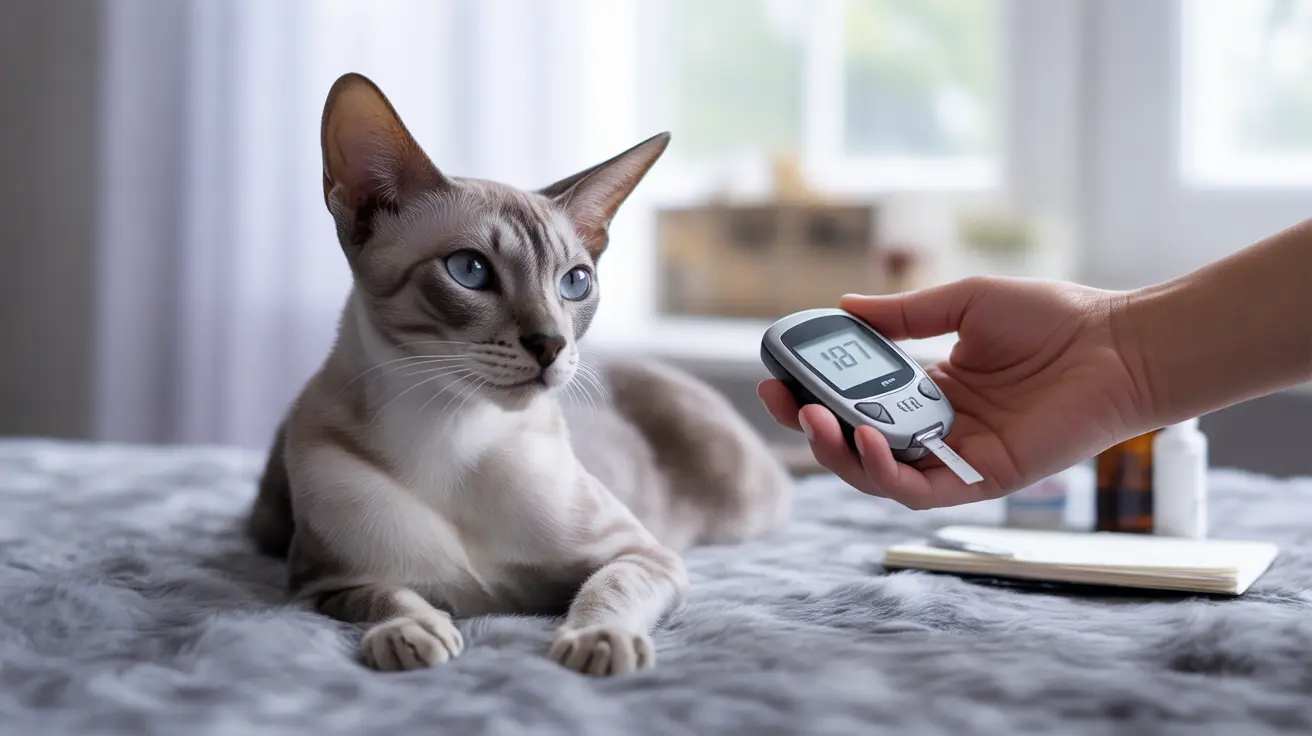Understanding Untreated Diabetes in Cats
Without proper treatment, diabetes can severely impact a cat's life expectancy. Untreated diabetic cats typically survive only a few weeks to a few months after symptoms become severe. This short timeline is due to the development of life-threatening complications such as diabetic ketoacidosis and severe organ dysfunction.
The absence of insulin treatment leads to the cat's body being unable to process glucose properly, resulting in:
- Severe dehydration
- Rapid weight loss
- Organ failure
- Potentially fatal ketoacidosis
Life Expectancy with Proper Treatment
The good news is that with appropriate treatment, diabetic cats can live significantly longer, often enjoying several years of good quality life. Proper management typically includes:
- Regular insulin therapy
- Dietary modifications
- Weight management
- Consistent blood glucose monitoring
- Regular veterinary check-ups
Studies show that well-managed diabetic cats can live an average of 4-5 years after diagnosis, with some cats living much longer.
Understanding Diabetic Remission
One unique aspect of feline diabetes is the possibility of remission, where cats no longer require insulin therapy. Approximately 20-50% of diabetic cats can achieve remission, particularly when treatment begins early. Factors that increase the likelihood of remission include:
- Early diagnosis and treatment
- Proper insulin therapy
- Appropriate dietary management
- Successful weight control
- Absence of other serious health conditions
Key Factors Affecting Survival Rate
Several factors influence how long a diabetic cat may live:
- Age at diagnosis
- Overall health status
- Presence of other medical conditions
- Quality of veterinary care
- Owner's commitment to treatment
- Diet and weight management
- Type of insulin used
Managing Your Diabetic Cat
Successful management of feline diabetes requires dedication and consistency. Daily care typically involves:
- Administering insulin injections
- Monitoring blood glucose levels
- Maintaining a strict feeding schedule
- Regular veterinary check-ups
- Weight management
- Watching for signs of complications
Frequently Asked Questions
How long can a cat with untreated diabetes typically live?
Without treatment, diabetic cats typically survive only 2-8 weeks after severe symptoms develop. Death usually occurs due to complications like ketoacidosis, severe dehydration, or organ failure.
What is the life expectancy of a diabetic cat receiving proper insulin treatment?
With proper treatment, diabetic cats can live several years after diagnosis, with many enjoying a normal life expectancy of 4-5 years or more, particularly if they achieve remission.
How likely is a cat with diabetes to achieve remission, and how does remission affect survival time?
About 20-50% of diabetic cats can achieve remission, especially with early treatment. Cats in remission have been shown to survive an average of 4.9 years after diagnosis.
What are the key factors that influence a diabetic cat's lifespan and chances of remission?
Key factors include early diagnosis, proper insulin therapy, appropriate diet, weight management, owner compliance with treatment, and the absence of other serious health conditions.
How does diet and weight management impact the survival of cats with diabetes?
Proper diet and weight management are crucial for survival. A low-carbohydrate, high-protein diet combined with maintaining a healthy weight significantly improves treatment success and increases the chance of remission.
Managing a diabetic cat requires commitment and patience, but with proper care and treatment, many cats can live long, fulfilling lives despite their diagnosis. Regular veterinary care, consistent monitoring, and dedication to treatment are essential for achieving the best possible outcomes for your diabetic cat.






